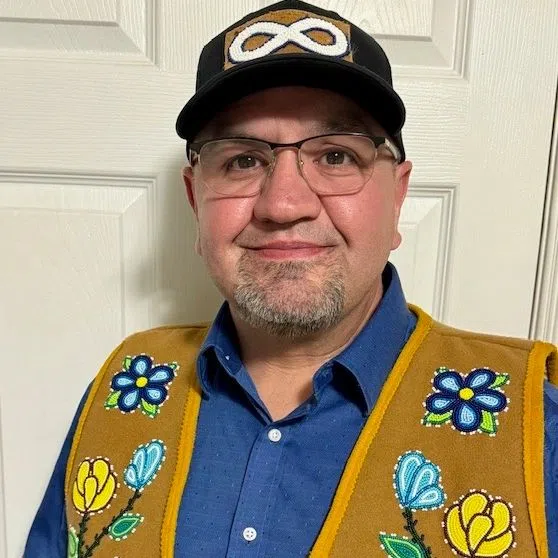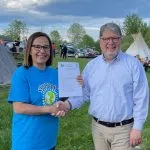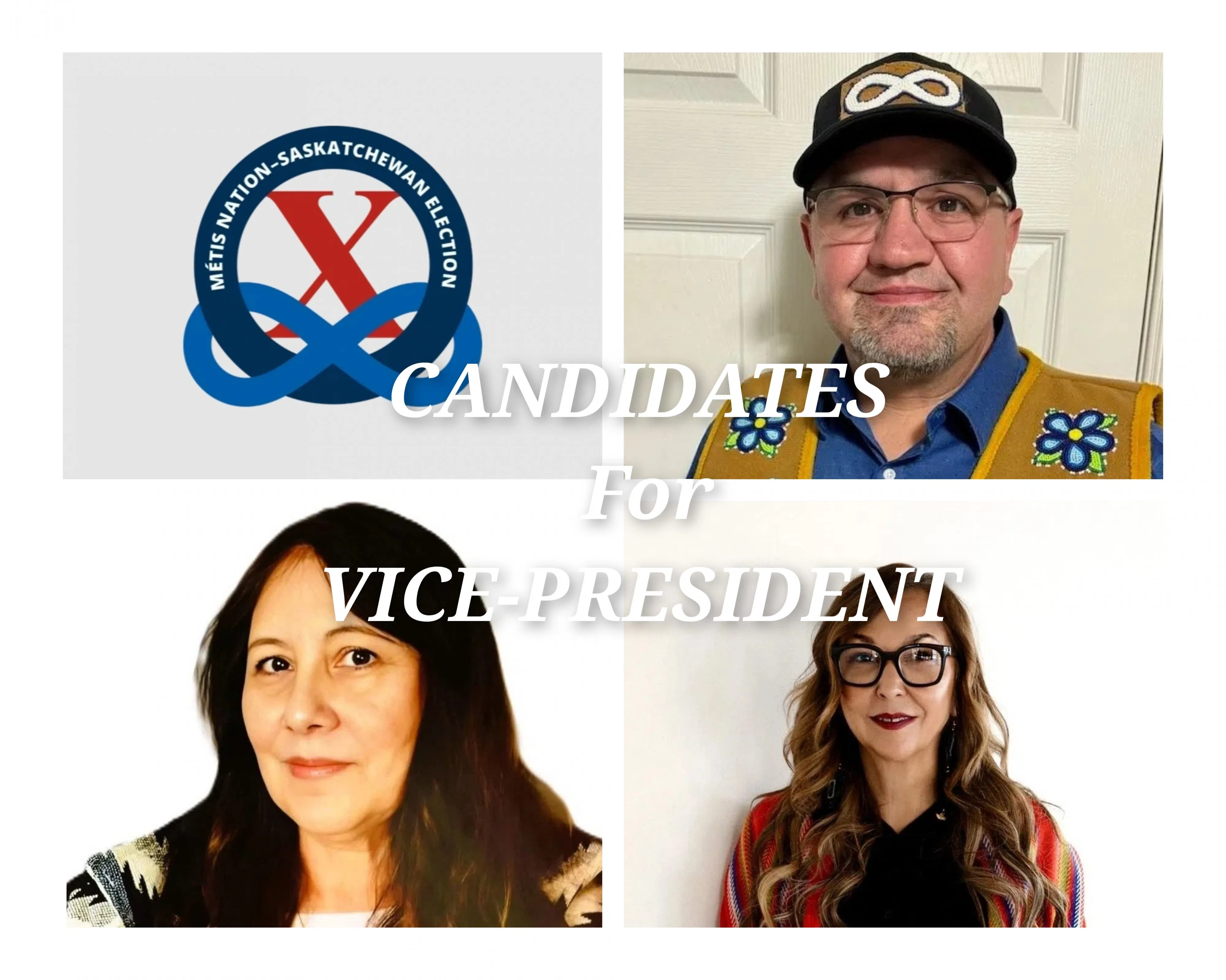
Vice-president hopefuls share their thoughts
With the Métis citizens in Saskatchewan preparing to elect a new term of leadership on May 24th, Eagle Feather News spoke with each of the candidates for the Vice-President and President positions, to learn more about their backgrounds, motivations, and the most important issues facing the Métis Nation-Saskatchewan (MN-S).
Here are your Vice-President candidates. Answers have been edited for length:
Karen Larocque (karenlarocque.ca)
Larocque’s background includes working as a school teacher and councillor, Indigenous liaison for the Saskatchewan Liquor and Gaming Authority, and in the non-profit sector with Les Filles de Madelaine (Saskatchewan Métis Women’s Representative Collective), and MN-S as regional director for western region 3.
Why are you running for Vice-President of the MN-S?
I’m running because we’ve just set up another level of bureaucracy for our citizens. It’s becoming a barrier to access, a barrier across the board. The other reason I’m running is because everything is at the top – our communities are suffering. Our citizens have access to programs and services, but my take is that we have become an extension of INAC. We’ve become a program and service delivery (entity) for INAC. We’re moving in the direction of self-government, so we have to break free of that and start looking at government pieces and our rights-based agenda.
On the rights-based agenda – there are no benefits. They’ve had millions come in, but it’s not reaching our people. We’re losing our people to the First Nations because there’s benefits to being First Nations. I want to leave a legacy, something for future generations, and as it stands now, the money seems to be flowing through our fingers like water.
What are the most important issues currently for the MN-S?
The first is decentralization of funding. We have to build up our foundation, which is the locals. And we need to understand the rights-bearing Métis communities are the locals. They are going by the wayside again and they’re losing strength. We need to build them up because that’s what actually brings us our rights. If our locals are weak, we are not going to be a strong Métis government or Nation.
Second is the registry. It needs to be looked at. We as a nation need to tighten it up because that’s where the disconnect is coming from –the MN-S to the locals. The locals don’t know who their citizens are because of the confidentiality piece. We need to take a page from the First Nations because they register their people, but they still have band lists. We register our people but the locals don’t have the list of citizens that are eligible to participate.
Why should voters consider you for Vice-President?
I’m very community oriented. We (Les Filles) just finished a research project on family violence. When we did our research, we had over 600 people engaged in this process. People want to be heard, people want their voices to shape this nation, and right now we’re not doing that, because when you come out with pre-developed or pre-disposed documents and you’re trying to ram it down our citizens’ throats, that’s not consultation, that’s not how we do things as Métis people.
We have a whole part of our community that’s not being recognized, and they need to be, because they held significance back in the day – and that’s the LGBTQ (community). When I look at how some of those women sitting at the provincial Métis council have been treated over the years, that’s why people should vote for me, because I will stand up. We have to change the culture of MN-S. It’s very evident that lateral violence in this nation is alive and kicking, and it needs to be stopped. We need strong leaders who will stand up,
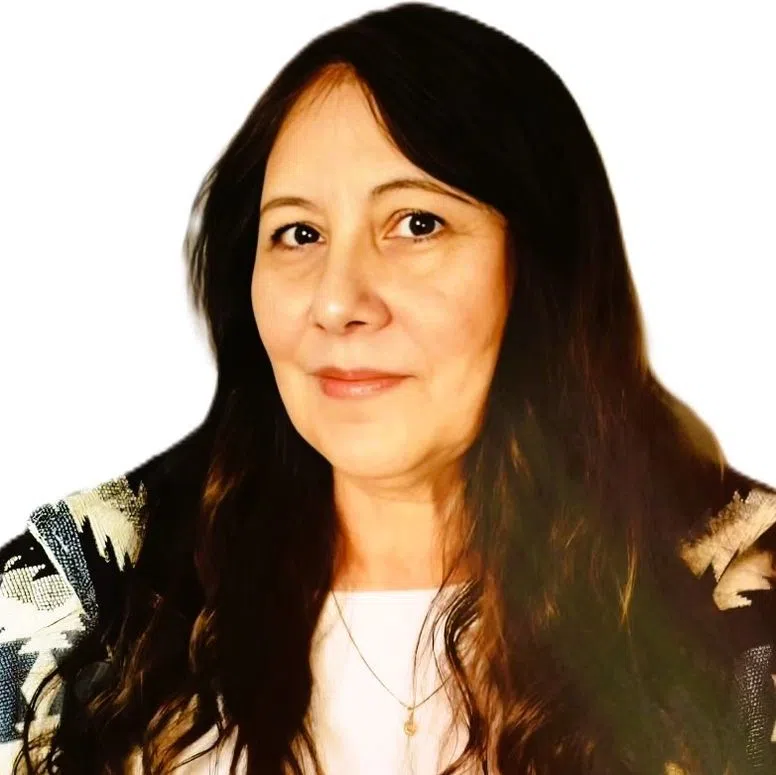
Michelle LeClair (voteleclair.ca)
LeClair has been MN-S Vice-President since being elected 2021, where she also served as Minister of Justice and Minister of Lands and Environment. She holds a law degree, with education from the University of Saskatchewan and Cornell University, and has previously served the MN-S in various capacities, including area director for Northern Region 1, and speaker for the house at the MN-S legislative assembly.
Why are you running for re-election?
Because I still believe there’s really important work to be done. Over the last four years, we’ve made a great deal of progress on a number of things, one of which is negotiating our self-government treaty, which isn’t finished yet. I also worked with the Île-à-la-Crosse boarding school survivors to reach an agreement in principle with the federal government. But we still have an active lawsuit against the provincial government to settle that. There’s just a number of things we’ve been working on the last four years that I believe consistency and continued action needs to happen.
What are the most important issues currently for the MN-S?
In the last four years we’ve grown tremendously and I always say with growth comes challenges. We need to catch up with that growth. In terms of our local and regional governance, that’s a really importation part. Locals need to be empowered and we need to find a way to build more capacity in those communities. And that lends itself to other issues we’re working on. Child and family services – we’re in the pre-work to trigger Bill C-92.
Also, on Métis rights and self government – we’re negotiating a self-government treaty. Now that we know which government is in power in Ottawa, we can get back to the negotiating table and finish those negotiations. Métis rights is a big one, harvesting rights across the province. We have harvesting rights in the north, I was the lawyer on the Belhumeur case down in For Qu’Appelle, and so we need to have consistency throughout the province with respect to our harvesting rights.
We’ve won a battle with respect to the Île-à-la-Crosse residential school but we haven’t won the war, which includes with Saskatchewan. Other Residential schools as well, like Timber Bay, they still have not had any federal or provincial recognition and that needs to happen.
Why should voters have confidence re-electing you as Vice-President?
I think results matter. Since I was elected in 2021, we’ve got a number of things done. With respect to the Residential school, that court case had been filed 20 years ago, and for 17 years nothing was done. So the last three years we’ve been able to get that done. I think I’ve shown a great deal of leadership in the work that I’ve done. Defending our rights against Saskatchewan with respect to the Saskatchewan First Act. Even though it passed, we continued to question its constitutionality. And we will continue to do that.
The Supreme Court of Canada case, which came out on the duty to consult, even though it’s an administrative question, it’s a really important case for Métis and First Nations in Saskatchewan. There’s been a lot of work, I believe my record speaks for itself. I work hard, and the heart of our citizens and our nation I carry with me in all the work I’ve done. I’ve overseen the expansion of Métis-led climate action and land stewardship, we had the return of the Batoche lands, which was huge for us as Métis people, for the federal government return our land back to Batoche.
And I’m really excited about Carney’s cabinet that was announced. It’s a really exciting time and I can’t wait to get back in and meet some of these ministers and push for what needs to be made right in terms of Canada’s Reconciliation Action Plan, and that is to recognize the MN-S in the right way.
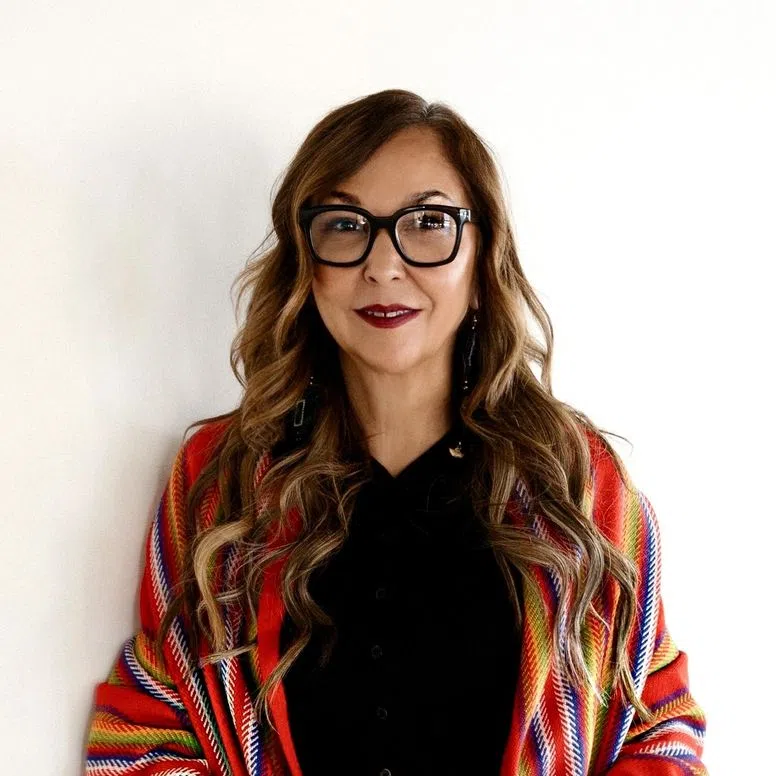
Jason McKay (electjasonmckay.ca)
Most recently, McKay has served the MN-S as the Wandering Métis, a travelling storyteller and storykeeper celebrating Métis culture. Has has served the MN-S in other capacities such as Director of Sports, Director of Language and Culture, and Director of Education.
Why are you running for Vice-President of the MN-S?
I’m running because I believe in our people, I believe in our rights, and I believe in our future. I travelled to communities, listened to stories and committed myself to real change. When I was the Wandering Métis, I considered myself a non-political ambassador of the people, but now I believe I have more to offer than being a storyteller and storykeeper, and want to fight for our rights here in Saskatchewan. I want children, grandchildren, unborn grandchildren to be proud to be Métis. I believe I’ve worked my way up to this position and that’s why I’m running in this race.
What are the most important issues currently for the MN-S?
One would be pushing the treaty over the line. I think, as section-35 rights holders here in Saskatchewan, I believe if we do push a treaty over the line, the way of life for people in Saskatchewan will be different.
Two – housing for the vulnerable people, we need to be able to take care of our people, and that’s a number one priority for our vulnerable people right now.
Why should voters consider you for Vice-President?
Because I’ve travelled all 12 regions as a storyteller and storykeeper. I’ve listened to the people and their wants and needs, and I consider myself an honest, integral man, and I believe in doing the right thing. I’m not doing this for myself, I’m not going for a name on a plaque, I’m not doing it for a salary. I’m doing it for the next generation that is unborn, and I want to be able to take care of our elders. In Indigenous, culture the two most important generations are the ones that are coming up and the ones that are going out. So I want to be able to take care of young ones, and the old ones as well.
A complete list of all other candidates is available online at mnselection.ca.
Editor’s note: All thoughts expressed are those of the interviewees.
